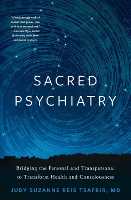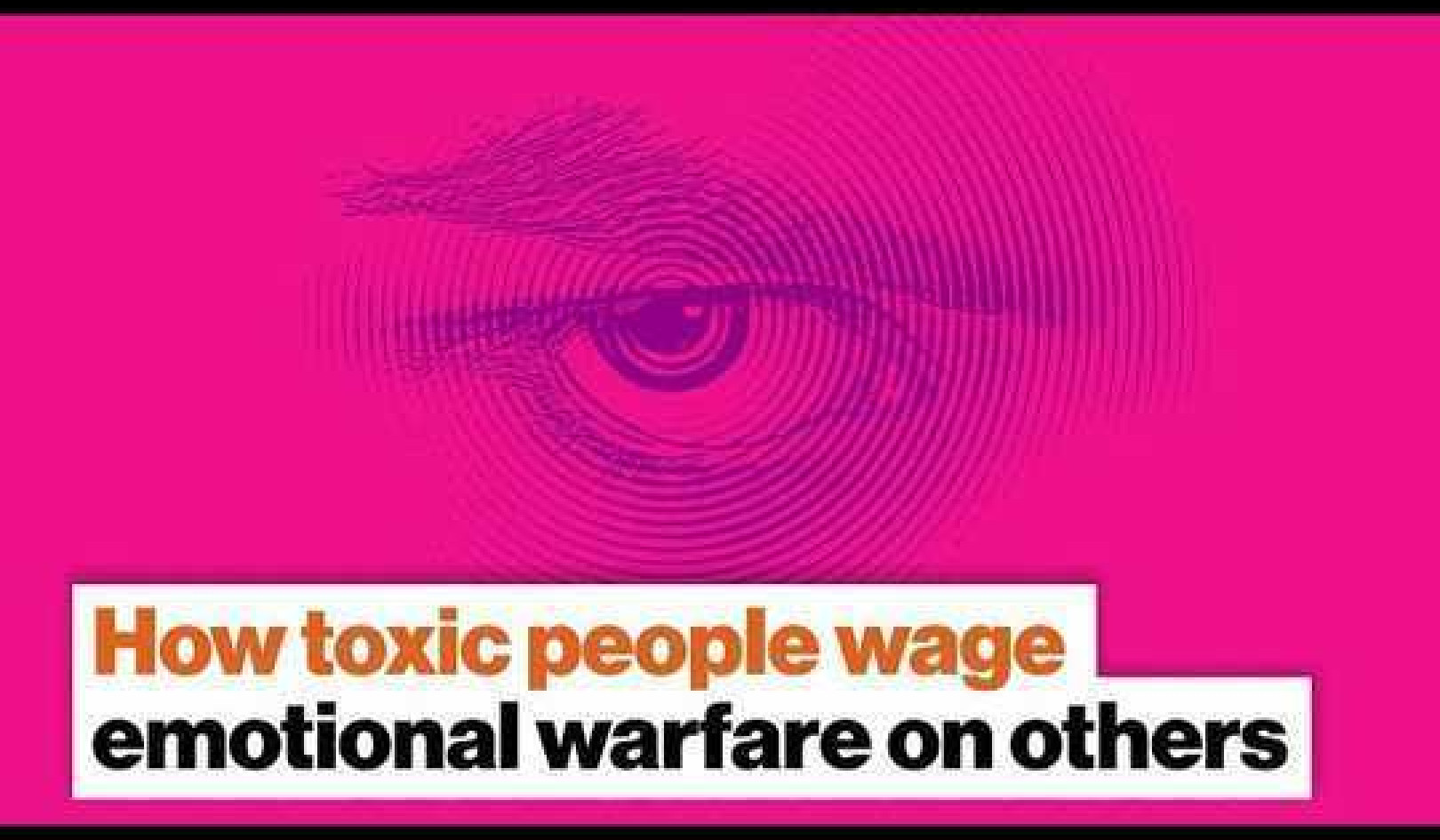
Image by Peter Ziegler
In this article:
- How toxic relationships affect your physical, emotional, and spiritual health.
- Understanding the impact of toxic relationships on the immune system.
- How your relationships can contribute to stress, anxiety, and illness.
- The role of chronic inflammation caused by relational stress.
- How breaking free from unhealthy relationships promotes healing.
Can Your Relationships Be Making You Sick?
by Judy Suzanne Reis Tsafrir, MD.
It may come as a surprise to you that your interpersonal relationships foundationally contribute to your physical, emotional, and spiritual health or illness. Please keep an open mind about this because I can assure you that I have met very few patients who are in frequent close contact with a person who is mistreating them who do not suffer health consequences from the stress, anxiety, and depression that this type of relationship causes.
It is also an extremely common occurrence that the current abusive relationship represents a repetition of a relational dynamic from the family of origin and thus carries distressing resonances that evoke conscious and unconscious associations. This pattern results in an even more powerful undermining of your well-being.
Holistic healing cannot occur in this context, and you must avoid contact with the person who is mistreating you. This is unfortunately nonnegotiable if holistic healing is your goal.
Absolutely everything that we experience has the potential to contribute to our growth on a soul level. Spiritually, we become involved in relationships with people who will offer the opportunity for our soul to evolve and to learn the lessons that we are meant to learn in this lifetime. In my own case, I married a deeply traumatized man who was an energy vampire like my father and who provided me with the painful but perfect circumstances to alchemically transform the wounds that I experienced in my family.
Opportunities for Soul Growth
The abusive dynamic in my new family provided me with the opportunity and necessity to stand my ground with my husband. I felt compelled to defend my son in a way that had been impossible for my own depressed mother, and I did not pass on my experience of betrayal and abandonment to my own children.
I offer this piece of personal history as an illustration of the rich opportunities for soul growth and development in our most heartbreaking and traumatic experiences, including the current predicament that humankind faces during these times of collapse. This perspective is an invaluable lens to view all our challenges and sorrows, because it offers the possibility of transforming terrible suffering into high-octane fuel for our psychospiritual development.
Toxic Relationships
Psychological help is typically sought because a person feels unhappy. They may have a sense that there is something about the way that they are feeling or thinking, the way that they are relating to others and approaching their life, that is causing them distress. It is often due to a recognition that they keep finding themselves in the same unwelcome situation or repeating a painful relationship dynamic, and they have insight into the fact that they are doing something that is getting in their own way. They recognize that the problem is inside of them.
When a new patient consults with me, their symptoms are most often a result of impaired immunity, which is expressed physically as inflammation of the body and the brain. Inflammation can manifest as myriad physical, psychological, and spiritual symptoms and can have a variety of common causes, including autoimmune illness, environmentally acquired illness, infectious illness from microbes, alienation from the spiritual aspect of the patient’s life, and psychological stress, to name a few.
Patients may seek help because of depression, anxiety, alienation, insomnia, an inability to concentrate, and fatigue, which are all related to inflammation. These psychiatric symptoms are often accompanied by physical symptoms as well, such as digestive and skin symptoms and chronic pain.
If a person is simultaneously involved in an interpersonal relationship that is causing them to suffer, the correct diagnosis, appropriate physical and psychological treatment, and spiritual practice can only help to a limited degree. It is not only toxic relationships with intimate partners that can have this effect; chronic relational stress with a parent, sibling, child, friend, employer, or coworker can also have a similar impact.
Toxic Relationships Block Healing
A patient can do everything right, meaning that they adhere to the cleanest diet; take a wide variety of precisely chosen, high-quality supplements; include adequate daily movement as part of their regular routine; practice sophisticated sleep hygiene; receive regular bodywork from skilled practitioners; and have a meaningful professional life, loving family relationships, a dedicated spiritual practice, and connections with supportive friends and community, but if they are involved in a toxic relationship that is causing significant distress, it is unlikely that they will be able to really heal without minimizing contact or ending the relationship altogether.
A toxic relationship not only causes psychological and spiritual pain but also results in chronic arousal of the sympathetic nervous system, known as the fight, flight, or freeze state, which has an adverse impact upon the immune system and causes cellular inflammation.
Breaking Free to Self-Respect and Healing
Another name for energy vampires is malignant narcissists. These are individuals who take advantage and exploit others and typically do not feel conflict or guilt about doing so. Malignant narcissists can exhibit a range of pathological behaviors, from extreme self-centeredness, irrationality, drama, and volatility to exploitation, frank aggression, and sociopathy.
It is a true blessing when the trauma and suffering resulting from the relationship with a malignant narcissist ultimately results in the spiritual transformation and psychological maturation of the victim. This can only happen when the victim is finally able to truly acknowledge the painful reality of the situation and accept that they do not have the power to change their partner.
Only when they no longer agree to engage in this type of destructive one-sided relational contract will they be able to part from the narcissist and to begin the work of healing. In these cases, the victim is finally ready to accept the horror of what they were willing to participate in, and ultimately, their self-respect demands that they no longer endure being treated in a way that they would ever treat anyone.
The childhood fantasy of omnipotence is relinquished, and they finally accept that, no matter how sincerely they try, no matter how much they sacrifice and devote themselves, the narcissistic parent will not be transmuted magically into the longed-for caring, loving parent by their efforts. They accept the bitter reality that it is not within their power to persuade the dysfunctional parent to love and care for them appropriately.
In an analogous way, when they finally admit that they will never be able to change the malignant narcissist into a rational, reasonable, and kind partner, family member, friend, or boss, they are freed. Ironically, the acceptance of the limits of their capacities is empowering and paves the way for profound psychospiritual evolution. In this way, a malignant narcissist can be a great spiritual teacher, offering the victim transformative lessons in the blessings inherent in the acknowledgment of reality, providing them the opportunity to be profoundly matured through their grief and suffering, and catalyzing personal growth and self-love.
Imbalanced Relationships and Challenged Immune Systems
This type of imbalanced relationship results in health-destroying stress, fear, and despair in the victim, which can have a far-reaching impact upon every organ system in the body, but particularly the immune, endocrine, and nervous systems. The burden of dealing with a malignant narcissist can put the immune system into a state of chronic overreactivity, which can result in an autoimmune condition, or conversely, it can suppress the immune system, predisposing a person to become particularly vulnerable to infections and toxins. Chronic stress affects the body by causing cellular inflammation.
It is exceedingly common for me to see a patient with severely compromised immunity who also reports high levels of stressful, adverse experiences in the present, the past, or both. It is frequently related to childhood trauma but can also be due to states of chronic sympathetic arousal in adulthood.
When a patient is regularly victimized by a malignant narcissist, it is essential to the healing process that they become conscious of the reality of the nature of their relationship. This will eventually enable them to make the necessary changes to their situation so that they can free themselves and create the conditions for healing to occur.
Reflecting Upon Your Relationships
Are you in a relationship that is causing you distress and undermining your well-being and self-esteem? Are there ways that dysfunctional dynamics in your family of origin are repeating in your relationships as an adult?
If you are in a relationship that is eroding your health and you are suffering from anxiety, depression, or a chronic mysterious illness and systemic inflammation, it will be imperative for you to make the necessary changes to your situation if you wish to feel better.
This type of relational pattern is not one that is easy to just shift quickly, but with the right therapeutic relationship and support, over time, it will be possible to empower yourself to feel ready to separate yourself from the relationship and to create the conditions for healing and transformation.
Copyright 2024. All Rights Reserved.
Adapted with permission.
Article Source:
BOOK: Sacred Psychiatry
Sacred Psychiatry: Bridging the Personal and Transpersonal to Transform Health and Consciousness
by Judy Suzanne Reis Tsafrir MD.
 In Sacred Psychiatry, you will be introduced to a diverse range of holistic approaches to healing. This book offers invaluable guidance on how to develop a personal spiritual practice and highlights the profound significance of fulfilling the soul’s purpose. It illustrates the usefulness of astrology, emphasizes how toxic relationships undermine healing, and showcases the remarkable healing power of food as medicine.
In Sacred Psychiatry, you will be introduced to a diverse range of holistic approaches to healing. This book offers invaluable guidance on how to develop a personal spiritual practice and highlights the profound significance of fulfilling the soul’s purpose. It illustrates the usefulness of astrology, emphasizes how toxic relationships undermine healing, and showcases the remarkable healing power of food as medicine.
Sacred Psychiatry also provides a holistic framework for weaning off of psychiatric pharmaceuticals and highlights treatable but frequently overlooked complex chronic conditions such as mold toxicity, mast cell activation syndrome, and Ehlers-Danlos syndrome.
For more info and/or to order this hardback book, click here. Also available as a Kindle edition and as an Audiobook.
About the Author
 Judy Suzanne Reis Tsafrir, MD, is a holistic healer, activist, artist, and gardener with a private practice of holistic psychiatry and psychoanalysis located in Newton, Massachusetts. She is a board-certi#ed adult and child psychiatrist and psychoanalyst, is on the faculty of Harvard Medical School and the Boston Psychoanalytic Institute and teaches and supervises at the Cambridge Health Alliance. She has particular interest in combining spiritual and developmental approaches to healing, helping patients wean from psychiatric medications, and treating complex chronic medical conditions that present psychiatrically, including mold toxicity, mast cell activation, and Ehlers–Danlos Syndrome.
Judy Suzanne Reis Tsafrir, MD, is a holistic healer, activist, artist, and gardener with a private practice of holistic psychiatry and psychoanalysis located in Newton, Massachusetts. She is a board-certi#ed adult and child psychiatrist and psychoanalyst, is on the faculty of Harvard Medical School and the Boston Psychoanalytic Institute and teaches and supervises at the Cambridge Health Alliance. She has particular interest in combining spiritual and developmental approaches to healing, helping patients wean from psychiatric medications, and treating complex chronic medical conditions that present psychiatrically, including mold toxicity, mast cell activation, and Ehlers–Danlos Syndrome.
Judy is a practitioner of a variety of energy healing and esoteric modalities and her practice is dedicated to healing through the integration of heart, mind, body, soul, the biosphere, and the cosmos. Visit her website at JudyTsafrirMD.com
Article Recap:
This article explains how toxic relationships, including those with malignant narcissists, can negatively impact health by causing chronic stress and inflammation. It explores the connection between relational stress and physical symptoms, such as autoimmune disorders, depression, and chronic pain. Healing requires recognizing the harmful dynamics of toxic relationships, breaking free from them, and embracing self-respect and self-love. Addressing these patterns is essential for holistic healing and immune system recovery.


























